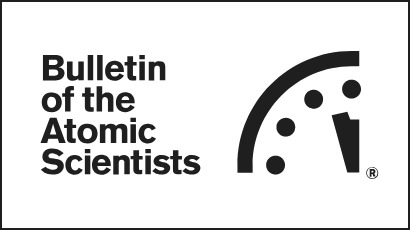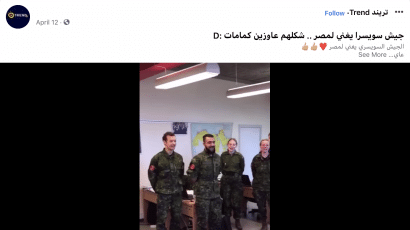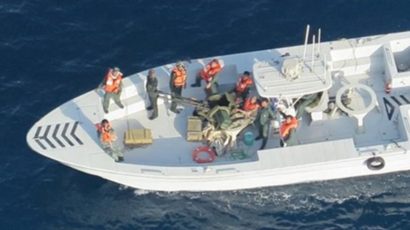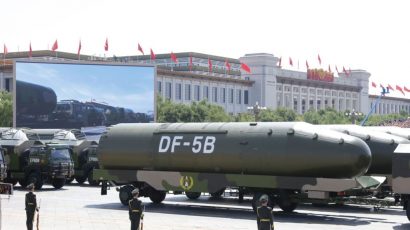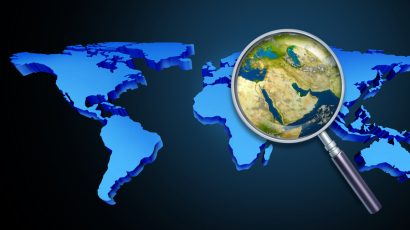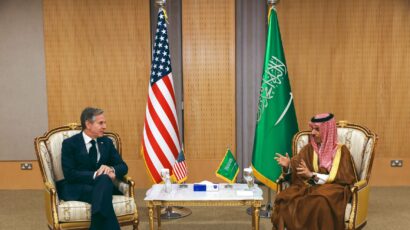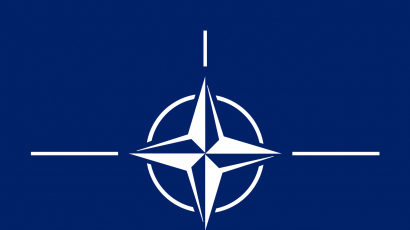Search results for
The future of the Iranian nuclear deal is still uncertain
A year after Iran and world powers signed a historic nuclear agreement, politicians in Washington and Tehran seek to derail it as the latter continues to struggle with economic challenges.
Three steps toward resolving Iran’s nuclear crisis
It been more than two and half years since Trump’s election, but none of the objectives of the ill-advised “maximum pressure” policy has been achieved.
Coronavirus disinformation adds conspiratorial fuel to a volatile Middle East
Misinformation has been a part of political life in the Middle East and North Africa for years; the coronavirus era has proved no exception. A volatile region where three wars are being fought can ill afford coronavirus-related lies and nationalistic pandemic one-upmanship.
U.S. nuclear double standards
As seen from Pakistan, U.S. nuclear weapons policies present troubling trends; an exclusive interview with the irreverent Brig. Gen. Atta M. Iqhman.
US-Iran standoff: almost too worrisome for words
Pick your metaphor: Slo-mo video of imminent car crash. Two cats circling, back fur up and claws ready. A tail vigorously wagging its growling dog (to distract from possible impeachment). Given recent events, any reasonable response to the current state of US-Iranian relations almost has to include a good measure of foreboding.
What next: A Sunni bomb?
The Islamic Republic of Iran stands at the threshold to the bomb. In 2010 it had more than enough low-enriched uranium (some 2,152 kilograms) to make its first bomb's worth of weapons-grade uranium. The LEU would have become highly enriched uranium in roughly 10 weeks had it been fed into the 4,186 centrifuges then operating. Thousands of other centrifuges are also known to be operating at the Natanz secret nuclear facility.
A US history of not conducting cyber attacks
On numerous occasions the US military considered conducting cyber attacks but refrained. These incidents reveal much about US strategic thinking, posturing, and assessments about the limits of cyberspace.
Creating an integrated U.S. national security policy
By asking what if, U.S. policy makers and advisers might find the solutions to restoring the country's credibility abroad.
For Iran, a nuclear option more trouble than it was worth
Iran went from steady pursuit of the Bomb in the mid-2000s to a more conciliatory stance by 2013. An American nuclear scientist in touch with Iran’s scientists and officials over the years examines Tehran’s motivations.
The coming Middle East missile arms race
As American influence in the region wanes, Israel and some Gulf states are embracing both missiles and nuclear power.
WMD no-first-use in the Middle East: A way to move forward in 2012?
At the 2010 Non-Proliferation Treaty (NPT) Review Conference, a declaration was approved unanimously to hold a conference in 2012 to discuss the notion of a zone free of weapons of mass destruction (WMD) in the Middle East. Since this decision, however, it is not clear what, if any, preparations have been taken with regard to organizing the conference, and there remain many more unknowns than knowns about what is expected to take place.
An alternative to the proliferation of uranium enrichment in the Middle East
Eventually, the nuclear fuel needs of the Middle East will have to be addressed, and a multinational uranium enrichment enterprise seems a practical possibility for containing nuclear weapons proliferation in the region.
Can NATO evolve into a Climate Alliance Treaty Organization in the Middle East?
NATO’s current security doctrine needs to change. It needs to enhance its political will and institutional capacity to manage climate change threats, both within the alliance itself and within the area most vulnerable to its southern flank: the Middle East. NATO will need to evolve into a CATO, a “Climate Alliance Treaty Organization,” that deals with the security implications of potential tipping points and develops policies in response.

